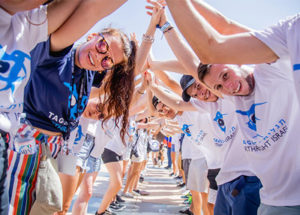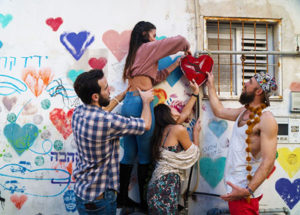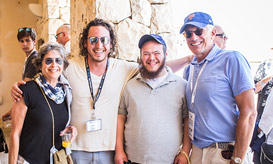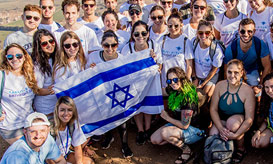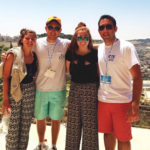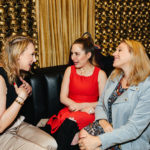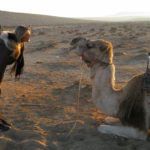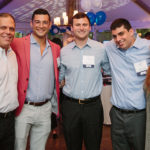Judaism has been an important part of my life for as long as I can remember.…
My last name might confuse you, but I am, in fact, an American Jew through my mother. My mother’s maiden name is Robin and she was born and raised in Pittsburgh a few generations after our ancestors fled the pogroms of Czarist Russia. And my father came from an Episcopalian background. There was little religion in our home in New Jersey despite maintaining cultural connections to Judaism by going to the JCC and celebrating Passover and Hanukkah. As a young adult, I became eager for my family’s guidance when I started my professional career and was public-facing as a journalist.
Sitting around the kitchen table, some family members encouraged me to hide my Jewish identity. Some said things like don’t speak any Hebrew or Yiddish while others said to hide behind my last name, St. Clair, suggesting that if I want to succeed, I should not display my Judaism.
I was 32 when I learned that Birthright Israel was open to me. This came at the right time in my life. I was married with a young daughter and at the time, we were expecting our second child. My daughter began asking questions when we encountered anyone who was visibly Jewish and all the while the strong sense of connection to my heritage had not dissipated. I always felt a connection for Israel. When I ran for political office, I was a strong proponent of Israel publicly. I found myself asking why I felt this way. What does this connection to my heritage mean? Am I Jewish enough?
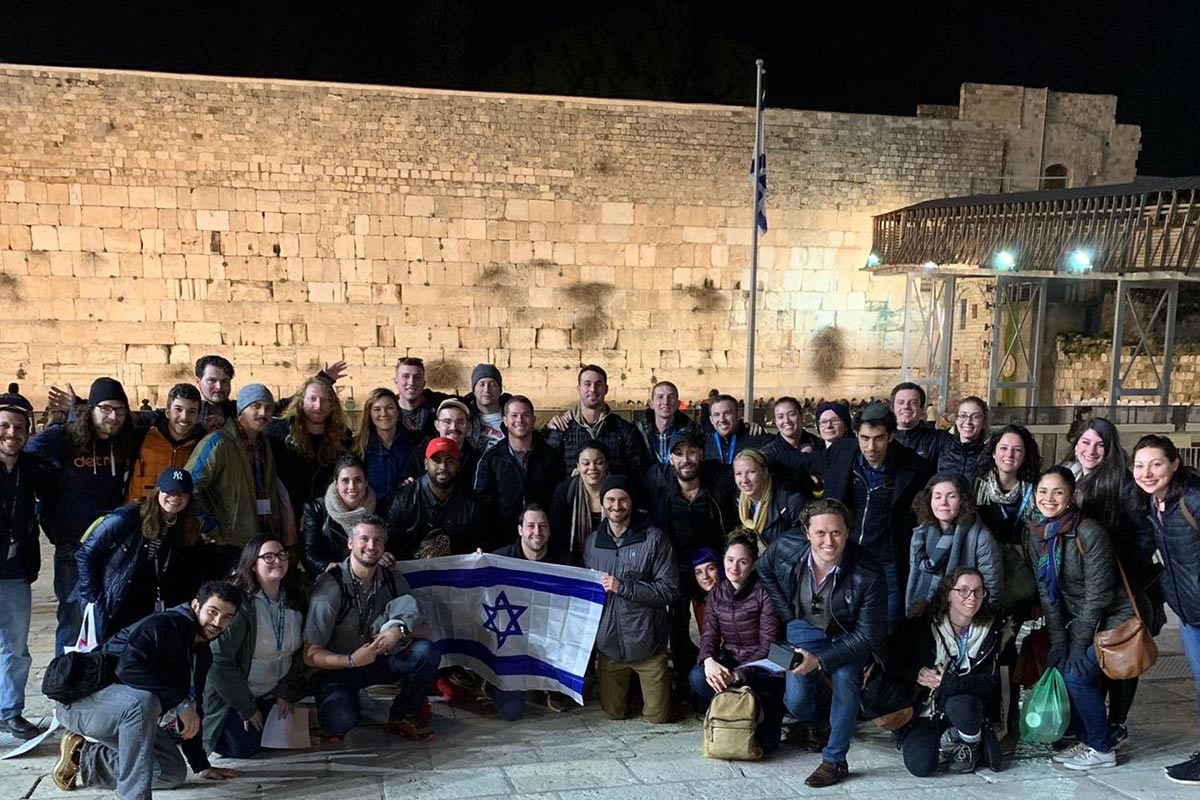
My wife supported this personal journey for me, as she encouraged me to claim my birthright while she was home with our family. I left for my Birthright Israel trip looking to explore this connection for what it meant to me personally and for our growing family.
My group was almost entirely Jews like me: they came from homes with one Jewish parent. And many of them had interests in the arts, so the days were filled with music and jam bands as we explored different aspects of our Jewish identity. I kept asking questions.
In Jerusalem, something clicked.
At Yad Vashem, while standing inside the children’s memorial, I thought of my own daughter and my son on the way. I broke down and sobbed.
Later that evening as the sun was setting into Shabbat, our group entered the Old City and descended to the Kotel. It had been a beautiful, clear day that quickly transitioned into a beautiful night. Several peers and I were visibly nervous. Were we Jewish enough? Then we heard sounds of singing, a beautiful chorus resounding in the air putting us in a rapturous feeling. As we entered the men’s section, we met some American Jews studying there and felt an instant connection and sense of belonging.
This moment of freedom with Jews celebrating Shabbat was an otherworldly stark contrast to the horrors I experienced earlier in the day at Yad Vashem.
A few days later, I had my Bar Mitzvah at the Kotel and I was given the Hebrew name Noach Yisrael or Noah Israel in English. I asked several artistic members of the group to sing with me to honor my mom. I chose “Do You Hear the People Sing?” from Les Mis, one of my mom’s favorite shows. While some may say this isn’t a Jewish song, some things aren’t always as they seem. Victor Hugo was known as a big supporter of Jews in France and the music was written by two Jewish composers. And I see it as easily interpreted as being about the Jews.
After the service, I called my mom and she immediately burst into tears.
“It awakened a spiritual recognition: because of Birthright Israel, I identified publicly as a Jewish person for the first time.”
My Birthright Israel experience was cathartic and a moving communal experience for me. It awakened a spiritual recognition: because of Birthright Israel, I identified publicly as a Jewish person for the first time. Today I feel a strong sense of pride and connection with my Jewish identity. And my passion for Israel deepened after hearing from Israelis on why it was so important for the State of Israel to exist.
Not long after my trip, I wrote an Op-Ed in The Jerusalem Post supporting Birthright Israel’s role in using Israel as a classroom for Jewish history, religion, and community, rather than making it about politics.
The Birthright Israel experience made me feel comfortable to share my thoughts and feelings about such a controversial subject.
I have also taken on a leadership role by joining Birthright Israel Foundation’s New York City Young Leadership Council. I have raised funds for Birthright Israel Foundation from friends, which is another way in which I can give back for an experience that means so much to me.
This past year I attended Yom Kippur services for the first time, an experience that made me feel more connected and grounded. In the future, I know Judaism will play a role in how my wife and I raise our children. I want to bring them more into the Jewish community and incorporate Jewish traditions, both religiously and culturally.
I want to thank the generous supporter who allowed me to experience my birthright. Thank you for restoring my Jewish identity and allowing this connection to extend to my family as part of a household that respects and advocates for its Judaism. Thank you!

